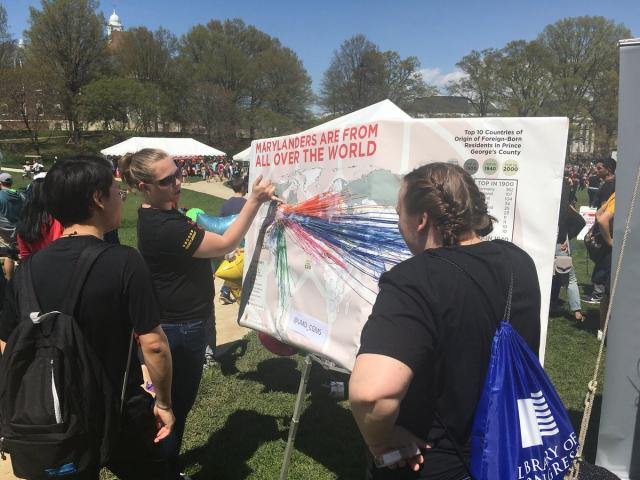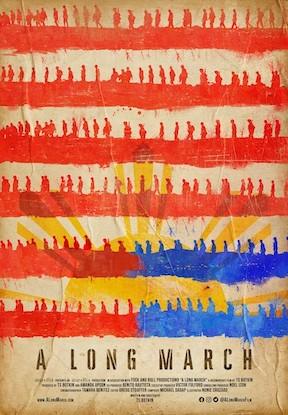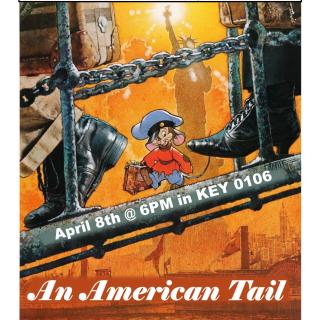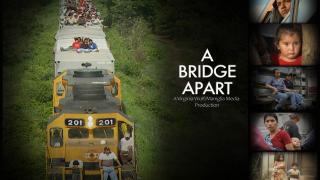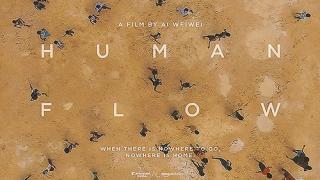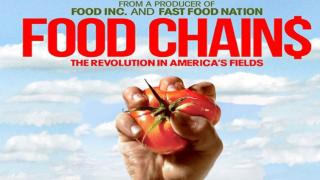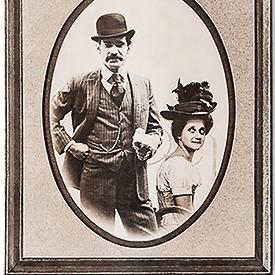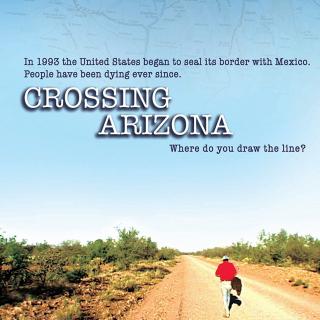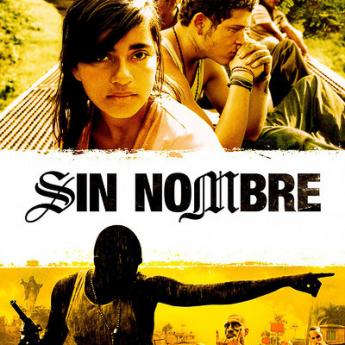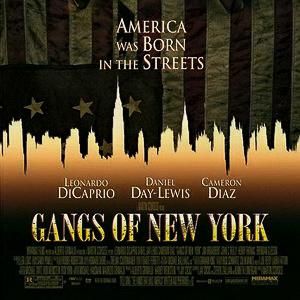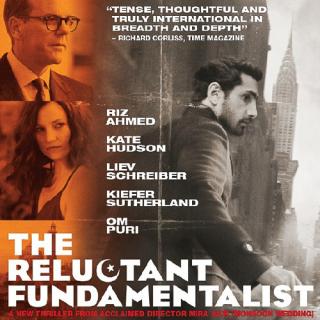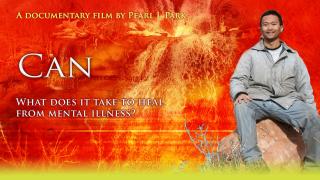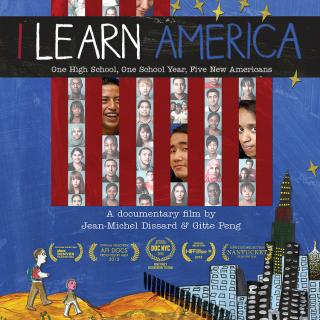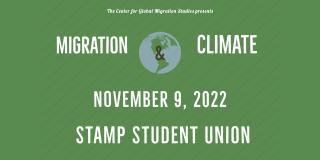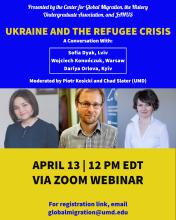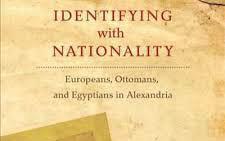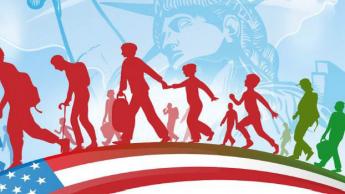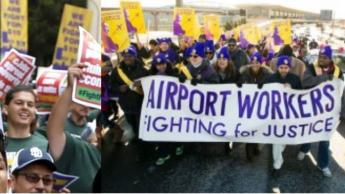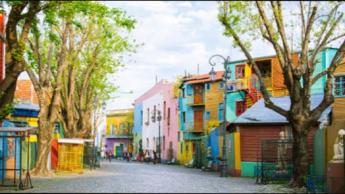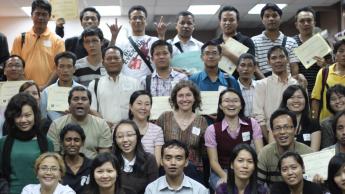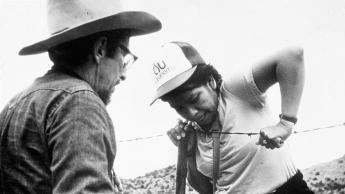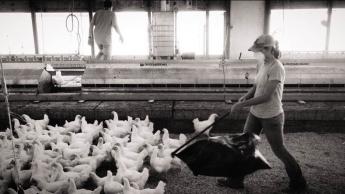Center for Global Migration Studies: Events
At the Center for Global Migration Studies, we constantly seek to engage with the university community and the wider public through a wide range of events and projects.
CGMS Events
The Center hosts our signature annual conferences that highlight research and scholarship related to immigration and migration. We also regularly bring scholars from on- and off-campus to discuss their work on im/migration from all over the world. Whether it be in the form of book talk, lecture, or methods workshop, we are always open to new forms of scholarly discussion and public engagement! In past years, we have hosted forums, film-showings, and book clubs as well!
We are always open to discussing new partnership opportunities — the study of migration is interdisciplinary, and we have partnered with organizations and departments across campus and the DC-Metro area!
Whether it is through a film, a conference, or just an open forum, we strive to expand knowledge of immigration and migration and to consider the experiences of migrants. Please contact us with any event suggestions or inquiries.
Events Archive

Past Conferences
The Center’s annual conference explores a major question in im/migration scholarship across a range of disciplines. These international conferences function as critical forums on which to disseminate new research on migration studies and through which to educate a wide public.
View Our Past Conferences
Past Forums
Typically, the Center invites experts to explain or lead a discussion on topics in the news for the general public. Past forms have examined issues such as the 2015 Syrian migrant crisis, immigration policy questions in the election of 2012, and violence directed toward immigrants after the massacre in Sweden in 2011.
View Our Past ForumsEvents Archive
Book Events and Workshops
Spring 2025
Methods Workshop with Dr. Amy Liu (University of Texas, Austin)
Surveying Non-English Speakers Among Asian Americans Workshop. Comments by Dr. Janelle Wong (UMD) and Dr. Alex Flores (UMD).
Thursday, March 6, 2025, 2:00 - 3:30pm (EST)
Berlin Room (TLF 2110) or over Zoom.
Amy Liu (UT Austin), a leading researcher of language and politics using surveys and statistical analysis methods, tackles the challenges of conducting surveys of non-English speakers. Building on her pioneering surveys of ethnic Chinese and immigrants in Europe and Southeast Asia, Dr. Liu is pursuing quantitative research among the Asian American community, 25% of whom do not speak English (well) and are consistently under-sampled in existing surveys. For example, less than 2% of the Asian respondents in the Collaborative Multi-racial Post-election Survey (CMPS) took the survey in an Asian language. Dr. Liu observes that because linguistic proficiency is not randomly distributed, research on Asian Americans is systematically biased against those with Limited English Proficiency (LEP). In this workshop, she presents an alternative data collection approach (N=4956) that yielded a much larger sample of non-English speakers (27.7%) – an approach that also considers (1) the diversity of ancestral origins for the respondents and (2) the financial resources available to the researchers.
Book Launch with Dr. Christina Getrich (UMD Department of Anthropology)
Launch of Christina Getrich's new book Everyday Activists: Undocumented Immigrants’ Quest for Justice and Well-Being.
Wednesday, April 3, 2025, 12:30-2:00 p.m.
Tawes Hall, Room 0330 or over Zoom
Everyday Activists chronicles how Deferred Action for Childhood Arrivals (DACA) recipients living in the DMV have negotiated their temporary and hotly contested immigration status across different Presidential administrations. While many DACA recipients actively participate in the large-scale, high visibility social movement to fight for policy change and immigrant justice, often overlooked are the thousands more who have never participated or are no longer active in organized immigration-related activism. Yet these DACA recipients are also fighting for immigrant well-being and justice in less publicly visible ways by strategically deploying navigational capital and engaging in everyday activism in solidarity with other immigrants. Everyday Activists illuminates how DACA recipients wrest control over uncertainty by channeling their energies into actions taken in everyday, adult life where they are making a deep and meaningful impact in their families and communities. These alternative forms of political engagement are instructive for us all in thinking creatively about how to show up for immigrants and others systematically subjected to social exclusion in our everyday lives.
Dr. Getrich will be joined by her long-term research collaborators (and UMD Anthropology & US Latina/o Studies alumni) Alaska Burdette, Ana Ortez-Rivera, and Delmis Umanzor, and Dr. Perla Guerrero (American Studies & Director of the U.S. Latina/o Studies Program), who will provide comments and facilitate discussion.
Guest Lecture with Samuel Yamashita (Pomona College)
The "Japanese Turn" in the Art, Architecture, and Cuisine of Europe and the United States, 1860 - 2020.
Wednesday, April 9, 2025, 4:00 - 5:30pm
Berlin Room (TLF 2110) or over Zoom.
This lecture will examine the "Japanese turn" in U.S. cuisine and explain how this contemporary culinary movement toward Japan is comparable to the Japanese influence on European and American art and architecture in the nineteenth and early twentieth centuries, constituting another important Japanese moment in American cultural history.
Fall 2024
Book Talk with Dr. Rina Agarwala (Johns Hopkins University)
Author meets Critics: An interdisciplinary discussion of sociologist Rina Agarwala’s (JHU) The Migration-Development Regime: How Class Shapes Indian Emigration (Oxford 2022).
Wednesday, October 16, 2024, 4:00-5:30 pm,
Berlin Room (TLF 2110) or over Zoom.
Featuring commentary by the historians Mireya Loza (Georgetown), Mae Ngai (Columbia), and Mircea Raianu (UMD). Interdisciplinary feminist scholar, Sayan Bhattacharya (UMD), will chair. This panel examines the emergence of India as the world’s largest exporter of emigrant workers and recipient of remittances over the past two centuries. Agarwala’s conceptualization of Migration-Development Regimes explicates priorities and practices of labor export from the perspectives of both the colonial and national governments of India, significantly enriching the robust scholarship regarding White settler societies’ exclusion of Asians and temporary worker systems based in Mexico, the Philippines, and the Caribbean.
Migration Studies Social
Tuesday, December 3, 2024, 11:00 - 1:00pm
Merrill Room (FSK 2120)
Please join us on December 3rd for our Migration Studies Social! With migrant advocacy in mind, CGMS aims to foster community among UMD faculty, staff, and students who are concerned for immigrant rights. This discussion will be an informal opportunity for companionship, discussion, and affirmation. Please bring your own lunch.
Book Launch with Dr. Stacy Fahrenthold (University of California, Davis)
Book Launch event with Stacy Fahrenthold on her new book, Unmentionables: Textiles, Garment Work, and the Syrian-American Working Class.
Wednesday, December 4, 2024, 4:00-5:30pm,
Berlin Room (TLF 2110) or over Zoom.
Histories of Arab America often begin with the Syrian merchant peddler, a historical 'main character' whose commercial prowess seems to explain the immigrant community's upward economic mobility through the twentieth century. In this talk, Stacy Fahrenthold explores the consequences of assuming the Syrian mahjar (diaspora) lacks an industrial past. Pursuing the stories of textile workers as they organized across the Arab Atlantic, Fahrenthold introduces us to alternative narrators: union activists who led street demonstrations, women who shut down kimono factories, child laborers who threw snowballs at police, and the merchant capitalists who contended with all of them.
Stacy D. Fahrenthold is Associate Professor of History at the University of California Davis. Her research focuses on Middle Eastern migration, transnational social movements, and the endurance of ties between the Arab American mahjar (diaspora) and modern Syria, Lebanon, and Palestine. At UC Davis, she offers courses in global migration, diasporas, and refugee histories.
Film Series
Each semester, the center sponsors a monthly “Immigration in Film Series” to promote an understanding of the multiple experiences of immigrants. While the film presentations are open to the public, they are often tied to courses across a number of disciplines at the university, including anthropology, English, art history, and history. Each film is introduced by an expert in the field of immigration studies and is followed by a discussion led by a University professor. All are free and open to the public
Below is a list of past films. To learn about upcoming films in the series or other events hosted by the Center for Global Migration Studies, please view the events above.
A Long March (2022)
Tuesday, April 9, 2024
6:00 PM in Shoemaker 2102
A Long March, is a documentary which "follows Filipino-American veterans as they emotionally trace their paths from war to erasure by the U.S. Government, marching from an obscured history to the Federal courts, right up to the steps of Congress in search of promises denied." (Los Angeles Pacific Film Festival). The event will also feature a Q&A session with US Army Major General Antonio Taguba. The event will be in-person in Shoemaker 2102 on April 9, 2024. Asian American Studies has graciously co-sponsored this event.
An American Tail (1986)
Wednesday, April 8, 2020
6:00 PM in Key 0106
A young mouse named Fievel Mousekewitz and his family emigrate from Russia to the United States by boat after their home is destroyed by cats. During the trip, a fierce storm throws Fievel from the ship, and he loses contact with his family. Luckily, he manages to sail to New York in a bottle. There, Irish mouse Bridget, an Italian mouse named Tony, and a kindly cat named Tiger help Fievel search for his loved ones.
A Bridge Apart (2014)
Thursday, April 11, 2019
3:30-5:30 PM in the Jiménez Room, Stamp Student Union
This film delves into the mass migration of immigrants from Central America and Mexico to the United States, all in the search of the "American Dream". Told from the perspective of the immigrants themselves, stories are recounted of the brutality that many face on their journey to the U.S., including entrance into the world of human trafficking and too often the loss of life.
Speakers included:
Meg Barett - The films co-producer.
Jacqueline Bradley Chacon - UMD SAFE Center immigration attorney.
The Honorable Denise Noonan Slavin - Retired immigration judge and President Emeritus of the National Association of Immigration Judges (NAIJ).
Human Flow (2017)
Wednesday, March 6, 2019
5:30-8:30 PM in the Global Crossroads H.J. Patterson Lobby
Over 65 million people around the world have been forced from their homes to escape famine, climate change, and war in the greatest human displacement since World War II. Human Flow, a film journey led by the renowned artist, Ai Weiwei, gives powerful visual expression to this massive human migration. This documentary follows a chain of urgent human stories that spans 23 countries and displays the staggering scale of the refugee crises and its personal human impact.
Food Chains: The Revolution in America's Fields (2014)
Spring 2019 (TBA)
There is so much interest in food these days yet there is almost no interest in the hands that pick that food. In the US, farm labor has always been one of the most difficult and poorly paid jobs and has relied on some of the nation's most vulnerable people. While the legal restrictions which kept people bound to farms, like slavery, have been abolished, exploitation still exists, ranging from wage theft to modern-day slavery. These days, this exploitation is perpetuated by the corporations at the top of the food chain: supermarkets. Their buying power has kept wages pitifully low and has created a scenario where desperately poor people are willing to put up with anything to keep their jobs.
Hester Street (1975)
Thursday, October 18, 2018
5:00-7:00 PM in Shoemaker 2102
Hester Street, a film that takes place in 1896 New York City, addresses themes of assimilation as experienced through the perspective of a Russian Jewish immigrant family.
Crossing Arizona (2009)
Tuesday, November 14
3:30-5:30 PM in KEY 0106
Crossing Arizona is a brilliantly done film about the Border Patrol's strategy to "prevent [migration] through deterrence [fence building @heavy crossing areas/densely populated border cities]." It showcases different perspectives on the movement of migrants through the Arizona-Sonora desert region (Tohono O'odham reservation & private ranches); these perspectives include ranch owners, Humane Borders, the Border Patrol, Protect Arizona Now, the Minutemen, Mexican Americans etc. This documentary was released in 2006, however, many of the same issues continue to permeate the discussion about immigration control at the border.
Sin Nombre (2009)
March 9, 2017
From award-winning director Cary Fukunaga, an epic dramatic thriller about a young Honduran woman, Sayra (Paulina Gaytan), who joins her father and uncle on an odyssey to cross the gauntlet of the Latin American countryside en route to the United States. Along the way she crosses paths with a teenaged Mexican gang member, El Casper (Edgar M. Flores), who is maneuvering to outrun his violent past and elude his unforgiving former associates.
Gangs of New York (2002)
April 25, 2016
The violent rise of gangland power in New York City at a time of massive political corruption and the city's evolution into a cultural melting pot set the stage for this lavish historical epic. In 1846, as waves of Irish immigrants poured into the New York neighborhood of Five Points, a number of citizens of British and Dutch heritage who were born in the United States began making an open display of their resentment toward the new arrivals. William Cutting (Daniel Day-Lewis), better known as "Bill the Butcher" for his deadly skill with a knife, bands his fellow "Native Americans" into a gang to take on the Irish immigrants; the immigrants in turn form a gang of their own, "The Dead Rabbits," organized by Priest Vallon (Liam Neeson). After an especially bloody clash between the Natives and the Rabbits leaves Vallon dead, his is sent to a brutal reform school before returning to the Five Points in 1862 as Amsterdam (Leonardo DiCaprio). Now an adult, Amsterdam has come to seek vengeance against Bill the Butcher, whose underworld control of the Five Points through violence and intimidation dovetails with the open corruption of New York politician "Boss" Tweed (Jim Broadbent). Gangs of New York portrays the chaotic world of working-class New York in the mid-1800s where political corruption, violent clashes between white natives and immigrants, and draft riots created a volatile atmosphere that left no life untouched. (Adapted from synopsis by Mark Deming, Rovi)
The Reluctant Fundamentalist (2012)
April 25, 2016
We begin in 2011 in Lahore. At an outdoor café a Pakistani man named Changez (Riz Ahmed) tells Bobby (Liev Schreiber), an American journalist, about his experiences in the United States. Roll back ten years, and we find a younger Changez fresh from Princeton, seeking fortune and glory on Wall Street. The American Dream seems well within his grasp, complete with a smart and gorgeous artist girlfriend, Erica (Kate Hudson). But when the Twin Towers are attacked, a cultural divide slowly begins to crack open between Changez and Erica. Changez’s dream soon begins to slip into nightmare: profiled, wrongfully arrested, strip-searched and interrogated, he is transformed from a well-educated, upwardly mobile businessman to a scapegoat and perceived enemy. With time, he begins to hear the call of his own homeland. Taking us through the culturally rich and beguiling worlds of New York, Lahore and Istanbul, The Reluctant Fundamentalist is a story about conflicting ideologies where perception and suspicion have the power to determine life or death.
Can (2006)
November 4, 2015
What does it take to heal from mental illness? Can Truong, a war refugee who was among the millions of boat people who fled Vietnam in the 1970's, was a model student aspiring to become a doctor, when he was diagnosed with depression and bipolar disorder. After years of unsuccessfully trying conventional medical treatments for his mental illnesses, Can becomes involved in the mental health consumer movement, a social and political effort by people labeled with mental illnesses who believe in recovery through self-determination and peer support. Inspired by his peers, he embarks on a healing journey of a different kind: trying to reconcile cultural differences with his very traditional Confucian father and attempts to make sense of his childhood wounds. He serves as a volunteer on numerous mental health organizations that promote recovery and explores spiritual and holistic healing modalities.
I Learn America (2013)
October 2, 2014
At the International High School at Lafayette, a Brooklyn public high school dedicated to newly arrived immigrants from all over the world, five teenagers strive to master English, adapt to families they haven't seen in years, and create a future of their own while coming of age in a new land. Schools "the first and ultimate hope for integration" are generally ill-equipped to serve immigrant teenagers. Efforts to educate and integrate young immigrants across the country are limited. Especially in neighborhoods and regions where demographics have changed dramatically in recent years, schools lack the resources or understanding to meet the needs of new immigrant students. The traditional paradigm relegates them to the sidelines. Yet school offers their first chance for sustained and meaningful participation in a new society. It is in school that they determine where they belong in the reality and imagination of their new culture. It is through interactions with classmates, teachers, coaches, and social workers that they shape their identities.
Fast Food Nation (2006)
April 30, 2014
Based on Eric Schlossinger's 2001 book of the same title, Fast Food Nation follows the story of Don Anderson, the Mickey's food restaurant chain's Marketing Director and the inventor of Mickey's best-selling hamburger, the "Big One." When an independent research report exposes the presence of cow's feces in the Big One, Don is sent to Cody, Colorado, to investigate. During his trip he discovers what the mass production system actually involves -- including the exploitation of Mexican undocumented immigrants, the contamination of meat, and animal cruelty. With comedy and drama, this film reveals the health risks and social and environmental consequences of America's fast food industry.
The Karate Kid (1984)
February 25, 2014
The film that launched a thousand karate dojos, The Karate Kid was a crucial cultural touchstone of the 1980s, transforming popular conceptions of not only martial arts but education, masculinity, and the place of Asian Americans in America. Appearing two years after the murder of Vincent Chin and right in the midst of the Redress Movement, the film offered up the Mr. Miyagi-Daniel LaRusso duo as a new model of multicultural harmony. Pat Morita’s Mr. Miyagi is a complex and enduring portrait of an Okinawan American handyman, karate sensei, classic American car aficionado, and decorated war veteran; at once he is a portrait of how ‘80s America wanted to see Asian Americans, crucial to America’s shifting vision of itself.
Sleep Dealer (2008)
December 12, 2013
In a bleak future where the borders have been sealed, vast computer networks commodify memories, and corporate warriors have been militarized, a tech-savvy "campesino" from a small Santa Ana farm village discovers a mysterious transmission that seems to be a blueprint for the city of the future. Memo Cruz lives with his family in Santa Ana del Rio, a remote farming community that has recently been hijacked by a private company. Having already taken control of the entire area's water supply, the company is now seeking to sell the precious resource back to citizens at criminal prices. As a result, aqua-terrorist cells have recently formed, with the explicit goal of taking back the water supply by force if necessary. Despite the growing tension in Santa Ana, however, all Memo really cares about is technology. Memo longs to find employment as a node worker in the high-tech factories of the northern cities, and has recently constructed a transmitter that allows him to vicariously experience the lives of others. One evening, while surfing the local airwaves, the gifted eavesdropper locks onto a forbidden broadcast not intended for the general public -- a broadcast that lays out explicit plans for creating a future that Memo could have never imagined.
Bhaji on the Beach (1993)
November 13, 2013
An assembly of Indian women, both immigrants and their British-born sisters, travel to the English seaside in this comic drama. The plot focuses on a trio of young women caught between tradition and independence: Ginder (Kim Vithana), who risks the uncertainties of social ostracism and single motherhood in order to escape from her abusive husband; Hashida (Sarita Khajuria), who jeopardizes her promising future in medical school when she becomes pregnant by her West Indian boyfriend (Mo Sesay); and Simi (Shaheen Khan), who integrates her feminist politics and her commitment to her culture by heading up the Saheli Asian Women's Group. To provide the women of her community with a chance to get together and enjoy themselves, Simi organizes a ladies-only trip to Blackpool, a seaside resort town that resembles Atlantic City. Along for the ride are boy-crazy teens, conservative matrons, and a garish visitor from Bombay, each of them offering a singular perspective on Asian immigrant culture. Asha (Lalita Ahmed), a middle-aged wife, mother, and newsstand proprietor, spends much of the trip experiencing picturesque visions in which an Indian goddess reprimands her for the missed opportunities in her life. Introspection gets pre-empted, however, when Ginder's husband (Jimmi Harkishin) and his brothers show up looking for a little involuntary family reunion.
Zoot Suit (1982)
October 23, 2013
Part fact and part fiction, Zoot Suit is the film version of Luis Valdez's critically acclaimed play, based on the actual Sleepy Lagoon murder case and the zoot suit riots of 1940s Los Angeles. Henry Reyna is the leader of a group of Mexican-Americans being sent to San Quentin without substantial evidence for the death of a man at Sleepy Lagoon. As part of the defense committee, Alice Bloomfield and George Shearer fight the blatant miscarriage of justice for the freedom of Henry and his friends.
First Person Plural (2000)
October 3, 2013
In 1966, Deann Borshay Liem was adopted by an American family and sent from Korea to her new home in California. There the memory of her birth family was nearly obliterated until recurring dreams led her to investigate her own past, and she discovered that her Korean mother was very much alive. Bravely uniting her biological and adoptive families, Borshay Liem embarks on a heartfelt journey in this acclaimed film that first premiered on PBS in 2000. First Person Plural is a poignant essay on family, loss and the reconciling of two identities.
The Apple Pushers (2011)
November 13, 2012
The Apple Pushers, narrated by Edward Norton, follows the inspiring stories of five immigrant pushcart vendors who are rolling fresh fruits and vegetables into New York City's food deserts - neighborhoods where finding a ripe, red apple is a serious challenge and where obesity rates are skyrocketing. These micro-entrepreneurs, who hail from Ecuador, Russia, Mexico, and Bangladesh, are at the heart of a unique urban strategy, the Green Cart Initiative, which seeks to increase the availability of fresh produce in under-served communities, in an effort to combat the obesity epidemic found in so many of America's cities.
In and Out of Africa (2012)
October 17, 2012
Interweaving stories of Western collectors, Muslim traders, African artists and intellectuals, and the filmmakers themselves, the film focuses on a remarkable art dealer from Niger named Gabai Barre. It follows him all the way from the rural Ivory Coast to East Hampton, Long Island, where he bargains for a sale. The film shows how (through occasionally hilarious and frequently fantastic tales about the art objects) he adds economic value and changes the "meaning" of what he sells by interpreting and mediating between the cultural values of African producers and Western consumers.
Mississippi Masala (1991)
October 1, 2012
Interweaving stories of Western collectors, Muslim traders, African artists and intellectuals, and the filmmakers themselves, the film focuses on a remarkable art dealer from Niger named Gabai Barre. It follows him all the way from the rural Ivory Coast to East Hampton, Long Island, where he bargains for a sale. The film shows how (through occasionally hilarious and frequently fantastic tales about the art objects) he adds economic value and changes the "meaning" of what he sells by interpreting and mediating between the cultural values of African producers and Western consumers.
Migration Exchanges Series
The center sponsors a series each semester on topics related to immigration. These informal presentations allow faculty members and graduate students across the campus an opportunity to share works-in-progress to audiences of interested students and faculty and to provide an environment for networking and intellectual collaboration.
Migration and Climate Conference
November 9, 2022
Stamp Student Union Panelists Alice Bullard, Sarah Cameron, Deb Niemeier, and Lauren Herzer Risi discussed their research pertaining to the relationship between climate change and migration. Todd Miller gave a keynote address. The panel was moderated by Professor Colleen Woods of the University of Maryland.
Ukraine and The Refugee Crisis
April 13, 2022
via Zoom
The three panelists, Sofia Dyak from the Center for Urban History in Lviv; Wojciech Konończuk from the Center for Easter Studies in Warsaw; and Dariya Orlova of the National University of Kyiv-Mohyla Academy in Kyiv, discussed the refugee crisis in Eastern Europe. The panel was moderated by Professor Piotr Kosicki of the University of Maryland.
A Global History: Citizenship and Nationality - A Talk by Will Hanley
Thursday, November 1, 2018
4:00 PM
2110 Taliaferro Hall
Drawing on the evidence presented in his recent book, Identifying with Nationality: Europeans, Ottomans, and Egyptians in Alexandria, Hanley will discuss how the concept of citizenry and nationality has evolved throughout history. In particular, Hanley will address the post-war world order that presumes every individual on earth is a citizen of a nation-state, leaving refugees, stateless persons, and the undocumented as societal problems to be solved. Will Hanley holds the position of Associate Professor at Florida State University.
The Business of the Nation: Foreign Contract Labor and the Rise of American Immigration Control
Wednesday, November 7, 2018
12:00 PM
2120 Key Hall
Hidetaka Hirota will discuss his current book project, a work that examines the issue of labor in 19th century America and the intersections between migration, capitalism, state power, and law. Hirota will touch on topics such as the transnational importation of foreign laborers to America, organized labor's opposition to the practice, and the evolution of federal alien contract labor law, which eventually led to the passage of the Immigration Act of 1924.
These Borders Are Not Our Borders: Uprisings of the Landless, Global Labor Migration, and the 21st Century Food Revolution
March 29, 2018
4:00 pm
2110 Taliaferro Hall
Annelise Orleck is Professor of History at Dartmouth College. She is the author of four previous books including Storming Ceasars Palace: How Black Mothers Fought Their Own War on Poverty and Common Sense and A Little Fire: Women and Working Class Politics in the United States. Her new book "We Are All Fast Food Workers Now": The Global Uprising Against Poverty Wages traces the rise and evolution of a new global labor movement comprising low-wage workers. The book is an up close and personal look at globalization and its costs, told through the eyes and in the words of low-wage workers themselves who in the second decade of the 21st century are fighting for respect, safety, and a living wage.
Can the Migrants Speak? Cultural Critique and Engaged Anthropology in Argentina
March 27, 2018
4:00 pm
2120 Francis Scott Key Hall, Merrill Room
Cynthia Pizarro is Professor of Sociology and Anthropology in the School of Agriculture at the University of Buenos Aires and an Independent Researcher at the National Scientific and Technical Research Council. She is the author of "We are Now Civilized": Invisibility of Indigenous Identity in a Rural Area of Catamarca Valley and Cultural Politics of Peasant Struggles: Narratives about a Land Conflict in a Rural Area of Catamarca. Her most recent publication is an edited volume entitled Bolivian Labor Immigrants' Experience in Argentina which gathers research results of specialists who have studied the various ways in which Bolivian immigrants participate in certain labor markets in different urban and rural areas of Argentina. The book highlights key issues regarding the structural factors that pattern the integration of immigrants in certain labor markets segmented by inequalites.
Trespassers? Asian Americans and the Battle for Suburbia
February 20, 2018
4:00 pm
2120 Francis Scott Key Hall, Merrill Room
Over the last few decades, California’s Silicon Valley has become not only the world’s technological epicenter, but also one of the fastest growing, and most racially and ethnically diverse regions in the U.S. Spurred by the rise of tech giants like Google and Facebook, the region has attracted diverse, highly-educated immigrants from across the globe, particularly Asia. These migrants have built their new lives among the region’s many predominately white, middle-class suburbs. Trespassers? explores the dreams and struggles of Asian Americans as they have made their homes in Silicon Valley suburbia, and the tensions that have often emerged over the region’s changing character. Join Dr. Willow Lung-Amam as she discusses her new book on the vital role of immigrants in the changing urban landscape and their fight for inclusion within the suburban American Dream.
Global Refugee Migration and Hidden Post-Conflict Refugee Education in Malaysia
February 9, 2017
12:00pm
2120 Francis Scott Key, Merrill Room
Colleen R. O'Neal is an assistant professor of School Psychology in the College of Education at the University of Maryland, College Park (Department of Counseling, Higher Education, and Special Education). Her primary research goals are to identify risk and resilience processes among ethnic minority immigrant and refugee students, with a focus on emotions, stress, and achievement. Dr. O'Neal earned her Ph.D. in Clinical Psychology from Long Island University in 2000 with NIMH predoctoral fellowship support, studying emotions among minority youth facing community violence. She then completed an NIMH postdoctorate in Mental Health Statistics at NYU. She received her B.A. in Psychology at Cornell University and her M.S. in Child and Family Studies at Auburn University.
Sanctuary and Asylum, Then and Now
September 29, 2016
4:00pm
2120 Francis Scott Key, Merrill Room
Linda Rabben is an author, human rights activist and associate research professor of anthropology at the University of Maryland. She did field research in Brazil over a 25-year period and worked for Amnesty International, the Rainforest Foundation, Lutheran Immigration and Refugee Service, and other NGOs on human rights, migration, environmental and international development issues. Her eighth book, Sanctuary and Asylum: A Social and Political History, will be published by University of Washington Press in September 2016. She has spoken about migration issues to diverse audiences in the US and UK.
Émigré Female Performers and the Aesthetics of Corporeal Modernity on Early Twentieth-Century Iranian Stage
March 8, 2016
12:00pm
2120 Francis Scott Key, Merrill Room
Ida Meftahi currently holds a Visiting Assistant Professorship in contemporary Iranian culture and society at the Roshan Institute for Persian Studies, University of Maryland. She completed her doctoral studies at the University of Toronto’s Department of Near and Middle Eastern Civilizations and was a postdoctoral fellow at the Institute for the Arts and Humanities at Pennsylvania State University. Her first book, Gender and Dance in Modern Iran: Biopolitics on Stage is scheduled for release in Spring 2016 (Routledge Iranian Studies Series). Offering a novel approach to corporeality in twentieth-century Iran, Dr. Meftahi’s historical research intersects with studies of gender, urbanism, performance, cinema, and political economy of public entertainment. In addition to teaching interdisciplinary courses on Modern Iran, she is the director of the Lalehzar Digital Project, a component of the Roshan Initiative for Digital Humanities, as well as faculty advisor for Roshangar: Roshan Undergraduate Journal for Persian Studies.
Integrating Brazil into Latin America: Intellectual Exchanges and Dialogues
October 28, 2015
2:00pm
2120 Francis Scott Key, Merrill Room
Thayse Leal Lima earned her PhD in Portuguese and Brazilian Studies from Brown University in 2014. Her areas of specialization include nineteenth century to contemporary Brazilian literature and culture, Modern Latin American literature and intellectual history, transnationalism and international literary circulation. She is currently working on a book project that traces the dialogues between Hispanic American and Brazilian cultural and literary critics during the second half of the twentieth century, focusing on their efforts to integrate the two distinct literary traditions of Latin America. Her research demonstrates that these dialogues opened new routes of intellectual exchange and literary circulation and challenged essentializing constructions of Hispanism and Brazilianism. Bringing forth new archival material that documents the infrastructure of transnational exchanges, she argues that the drive toward a continental paradigm goes beyond the ideological discourse of Latin American solidarity, relating also to politics of literary promotion, recognition and internationalization.
From Zacatecas to California to Arkansas: Social Networks, Multi-Site Migration, and the Poultry Industry
November 19, 2015
2:00pm
2120 Francis Scott Key, Merrill Room
This talk by Perla Guerrero explores the factors that led Mexicans from the state of Zacatecas to immigrate to California in search of a better life and their subsequent migration to Arkansas. Following patterns established through the Bracero Program, Zacatecanos left their hometowns to go al norte in search of opportunities in the Golden State only to eventually lose their stable and relatively well-paying jobs in the 1990s recession. Soon, however, their immigrant social networks began reporting that Arkansas had plenty of jobs in polleras, as Latinas/os call the poultry factory, as well as had a low cost of living. The poultry industry, central to Arkansas’ political economy for decades, was looking for a more exploitable work force and by 2005 Latinas/os constituted a major percentage of the its work force. In some plants in Northwest Arkansas their numbers reached into the seventieth percentile, while Arkansas’s Latina/o population more than quadrupled in one decade. The poultry industry diversified Arkansas more in two decades than any other endeavor with consequences that will reverberate through the rest of the century.
Slavery in the Twenty-First Century: Combatting Human Trafficking
April 21, 2015
12:00pm
2120 Francis Scott Key, Merrill Room
Prof. Christine White, from UMD's Department of Criminology, will present on different forms of human trafficking, as well as international and domestic trends and practices. After graduating from law school in 2000 and moving to Prince George’s County, Prof. White has committed her energies towards educating college students and members of the public. More recently, she has begun teaching a course on Human Trafficking and is currently the chair of the Research Committee for the Prince George’s County Human Trafficking Task Force. Prof. White also serves on the board of Restoration Project International, a non-profit organization charged with the goal of providing education and economic independence to survivors of sex-trafficking; and works with the Howard University Bar Project to mentor law school graduates.
Too Bad I’m Not an Obvious Citizen: The Effects of Racialized US Immigration Enforcement Practices on Second-Generation Mexican Youth
October 8, 2014
12:00pm
2120 Francis Scott Key, Merrill Room
Dr. Christina Getrich, from UMD's Department of Anthropology, will present research on the effects of mistreatment by immigration officials on second-generation Mexian youth. Drawing from extensive fieldwork conducted with 54 teenagers in San Diego, this presentation will address how immigration enforcement practices reinforce a racialized form of belonging that has negative effects on youth, but also highlights how these youth deploy strategies of resistance to contest them. Dr. Getrich's academic work focuses on the health and well-being of Latino immigrant families and their incorporation into U.S. society.
Alternative Incorporation Strategies of Foreign-Born Faculty in U.S. Academia: Unifying Social, Cultural, and Professional Dimensions
April 28, 2014
12:00pm
2120 Francis Scott Key, Merrill Room
Amy Carattini, Ph.D. candidate in sociocultural anthropology, will present research on immigrants in the middle-class sector of the economy that indicates that the assumed distinction between immigrant groups and the national majority is not accurate. Preliminary findings from interviews with 48 foreign-born professors suggest that these immigrants often describe who they are and what they do in relation to their occupation rather than their nation states of origin and/or destination.
Im/migrant Health during Anti-Immigrant Times: Using Ethnography to Document Experiences of Mobile Populations in the US Southeast
February 24, 2014
12:00pm
2120 Francis Scott Key, Merrill Room
Thurka Sangaramoorthy, Assistant Professor of Anthropology, will discuss using rapid and traditional ethnographic methods to document the complex relations between unauthorized migrant labor, mobility, and structural and social vulnerability, and in particular, the experiences of im/migrant populations in HIV/AIDS public health prevention efforts. Using ethnographic research conducted with health and social service providers working with Latino migrant workers and sex workers in rural North Carolina and with Haitians and HIV/AIDS experts in Miami, the talk will highlight the diversity of im/migrant experiences in HIV/AIDS prevention and document the health needs of mobile populations more broadly. Findings will be used to discuss practical implications for HIV/STD prevention, including calling on public health institutions and practitioners to incorporate the concept of mobility as an organizing principle for the delivery of health care services.
Willow Lung-Amam, Assistant Professor in the School of Architecture, Planning and Preservation, will discuss her work on the "new white flight"
February 11, 2014
12:00pm
2120 Francis Scott Key, Merrill Room
In 2005, a Wall Street Journal article entitled "The New White Flight" rocked the Silicon Valley suburb of Cupertino, California. The article argued that whites were leaving Asian-dominated Cupertino schools that they perceived to be too competitive and narrowly focused on academics, especially math and science at the expense of the liberal arts. Since its publication, scholars have remained strangely silent on the issue. In a case study of Mission San Jose High in the Silicon Valley suburb of Fremont, Lung-Amam finds significant evidence for the "new white flight" thesis, its causes, and effects on neighborhood race relations and school policy. This case challenges the way that scholars have typically approached issues of race and segregation in schools from the perspective of black/white, urban/suburban divide and instead shows how the politics of race and education are shifting in the face of increasing diversity and immigration in contemporary suburbia. It underscores the pressing the need for discourses about equity in schools to go beyond questions of access and integration to white suburban schools, to include critical questions about different educational values and ideals, the shifting meaning, forms, and geographies of racialized privilege, and the presumed value of racially "balanced" suburban schools.
Circulation of Knowledge on Immigrant Issues: A Case from Prince George's County
November 18, 2013
12:00pm
2120 Francis Scott Key, Merrill Room
Judith Freidenberg, Professor of Anthropology and a member of the Center's advisory board, will discuss her work in doing oral histories with immigrants in Prince George's County.
Knowledge about immigration tends to be compartmentalized, with conflicting information provided to the public by government documents, the media, think tanks, and community organizations. Left out of the production of knowledge is the voices of the immigrants themselves. Based on research funded by a seed grant and in collaboration with the Smithsonian and the Center for the History of the New America, two courses were taught on the topic of immigration. From these courses, 16 video life history interviews were collected with immigrants in Prince George’s County, Maryland and edited into three thematic short videos (education, identity, and connections). These videos were shown and discussed in several venues for two purposes: 1) to disseminate these silenced voices and 2) to stimulate public dialogue both on the life circumstances of immigrants as well as on the policies and politics of contemporary immigration. The three short videos described above will help us engage in dialogue on how immigrant voices add to the production and circulation of knowledge about immigration.
Asian American Women Playwrights and the Dilemma of the Identity Play: Staging Heterotopic Subjectivities
October 7, 2013
12:00pm
2120 Francis Scott Key, Merrill Room
Esther Kim Lee, Associate Professor in the School of Theatre, Dance, and Performance Studies and a member of our advisory board, will be our initial presenter, giving a talk on Asian American women playwrights, focusing on three case studies and the role of identity.
Since the early 1990s, the number of Asian American women playwrights has grown significantly. Their plays have been produced at regional theatres in the U.S., and many have received top playwriting awards. At the same time, the range of topics and dramaturgical styles has widened, and recent plays by Asian American women playwrights defy conventional categorizations of race and gender. However, almost all Asian American women playwrights have expressed the need to write what can best be called the identity play. Whether the need is rooted in reasons driven by the economic market of American theatre or it is because the writers have personal agendas, each writer has written at least one identity play. For minority writers, getting recognition for writing on topics not specific to their race, ethnicity, or gender has been read as a sign of success and acceptance, yet they have all felt compelled to write plays based on their lives and experience. The talk will examine three case studies—Julia Cho’s 99 Histories, Diana Son’s Satellites, and Young Jean Lee’s Songs of the Dragons Flying to Heaven—in order to articulate how each playwright writes about her identity as both an Asian American and a woman while at the same time rejecting the limitations and expectations of that identity.


